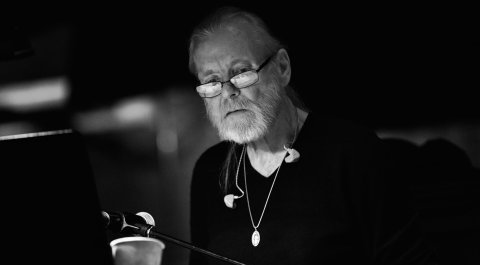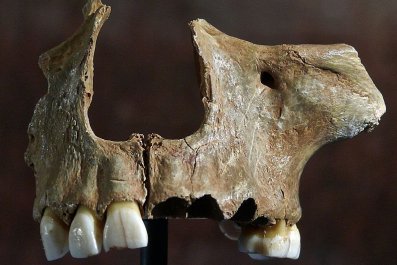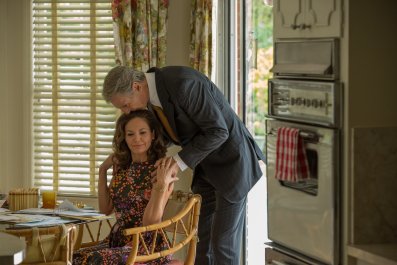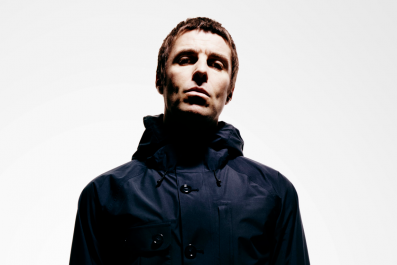In 2012, Gregg Allman visited a doctor in New York. The doctor sent him straight to the hospital, where Allman learned that he had a recurrence of liver cancer. The news was bleak: The disease was terminal. He was told he had 12 to 18 months to live.
The Southern rock legend did not despair. "He didn't complain," says Chank Middleton, Allman's best friend of more than 45 years. "He didn't worry. And to me that was strange. If they had told me that, I would've gone into straight shock." Allman, who founded the Allman Brothers Band in 1969 with his late brother Duane, rededicated himself to the central joy of his life: his music.
"Music was his life," Middleton says. "It never was about the money. It was always about the music." And music became his focus as he stared down mortality. Faced with the option of radiation treatment, Allman said no, because the treatment might have affected his vocal cords. There didn't seem to be much point in extending his life if he couldn't sing.
Allman, who died in May, far outlived that initial prognosis. In 2016, he visited the historic FAME Studios in Muscle Shoals, Alabama, to record what would become his final record. Southern Blood, the rocker's posthumous album—which finally sees release this week—is spirited, often moving and rooted in the soulful, unmistakably Southern blues-rock fusion that had been his life's work since the twilight of the 1960s. It's a covers-heavy affair, with one Allman original.
Don Was, of Was (Not Was) fame, served as producer during the sessions, which took little more than a week. Allman sang most of the vocals live while his band performed. This was a joyful period, recalls Middleton, who was constantly by Allman's side. (The pair became close friends in 1969, when Middleton was working at a barbershop next door to Capricorn Records in Macon, Georgia, the Allmans' home base at the time. Middleton, whose deep drawl betrays his Georgia upbringing, has since been described as an Allman "muse, crisis responder, aide-de-camp, valet, wing-man, and confidante," per a 2013 profile.)
"When they go in the studio, if they were dogs, all them tails would be wagging," says Middleton with a laugh. "When you go in the studio, it's a good feeling. It's a happy feeling. Just like going in the delivery room and delivering a child. You've been expecting for nine months." FAME Studios was particularly special for Allman because of its close association with his brother Duane.
Was had learned of Allman's illness while participating in a 2014 tribute concert in the rocker's honor. After overhearing a conversation that wasn't intended for him, "I got a sense of how serious his illness was," the producer tells me. "When we started the record, I was aware that he probably wouldn't be around to do these kinds of interviews."
Was recalls the recording process as a mix of emotions. "It's weird, man," Was says. "There was a lot of duality to it. Clearly, we were doing something important that had overtones of gravitas—and a kind of somber [mood]. But at the same time, we had a great time making the record. He was very upbeat," Was says of Allman. "Even if he'd lived another 20 years, he was very focused on getting this sound. Also, the group of songs we'd settled on was making the statement that he wanted to make as a farewell."
Related: David Bowie, Leonard Cohen and the art of the farewell album
The material is tinged with an awareness of encroaching mortality, as well as a sense of peace. Among the highlights are a gorgeous, slide guitar-inflected cover of Bob Dylan's "Going Going Gone" and a cathartic performance of "My Only True Friend," Allman's ode to life on the road. The latter song, written in collaboration with guitarist Scott Sharrard, begins the album with Allman singing, "You and I both know this river will surely flow to an end / Keep me in your heart, and keep your soul on the mend"—a line that recalls Warren Zevon's wrenching farewell ballad "Keep Me in Your Heart."
Then, as the acoustic chords rise in urgency, Allman sings, "I hope you're haunted by the music of my soul when I'm gone."
Middleton gets choked up discussing this song. He says it reminds him of Otis Redding's "(Sittin' On) The Dock of the Bay," also released posthumously. "It's like, he saw something we didn't see at that point," he says. "I was there when they did it in the studio in Muscle Shoals. But it never did the work. That song didn't register until he had passed."
But it's the final song on the record, a vulnerable rendition of "Song for Adam" by Jackson Browne, that made the deepest impact on Was. Browne, who duets with Allman on the recording, wrote the song in memory of a friend who died from an apparent suicide. But Allman sang the song with a different fallen friend in mind: his brother Duane.
Browne and Gregg Allman had been quasi-roommates, crashing on the floor of the same house in the late '60s. "Song for Adam" later appeared on Browne's debut album, released a few short months after Duane's fatal 1971 motorcycle crash.
"[Gregg] always loved that song," Was says. "Once Duane passed away, I think it really reminded him of his brother. He'd always wanted to record it." While recording the vocal take for Southern Blood, Allman became overcome with emotion. "When we got to the third verse, it seemed like he stopped singing in the middle of the song. You can hear it on the record. Gregg got choked up, and tears welled up. It was pretty heavy."

That charged silence remains in the recording: Allman's voice grows hoarse and abruptly trails off. The producer figured Allman would eventually sing those two missing lines. "But that time never came. His health deteriorated shortly after that. As a result, Gregg stopped singing in the middle of the song literally and figuratively. And we just left the last two lines open."
It was the final song recorded for the album. Allman's illness soon progressed, and he was never able to sing in the studio again, according to Was. Buddy Miller was eventually recruited to sing the harmony overdubs that Allman had intended to sing.
But Allman remained spirited during his final months.
"All the way up to the very end of his life, he was not afraid of death," Middleton says. "He sat up on the sofa every day. He never was bedridden. He never complained. He never did seek any sympathy from nobody. Not even me nor [wife] Shannon."
On May 27, 2017, Allman died, mere months after the death of his Allman Brothers bandmate Butch Trucks. Middleton says that he drifted off minutes after his manager, Michael Lehman, called and spoke to him via speakerphone.
The week of his death, Southern Blood was being mixed. That week, he told Was, "You know what to do. You got it. I trust you to finish." Allman heard some of the final mixes himself and was quite pleased.
Middleton vividly remembers the night before he died. "Me, him and Shannon, we sat up until 3:30, 4:00 that morning and we listened to some cuts off the new CD. We listened to 'Song for Adam' about three times. He was so proud of it. But unfortunately, the next morning, he kind of just slipped away from us."
Middleton misses his friend, and he misses the music.
"To me, losing him is one thing. Losing his music is twice the hit."
Southern Bloodwill be released on September 8 on Rounder Records. Below, watch an exclusive stream of the music video for "I Love the Life I Live."

















